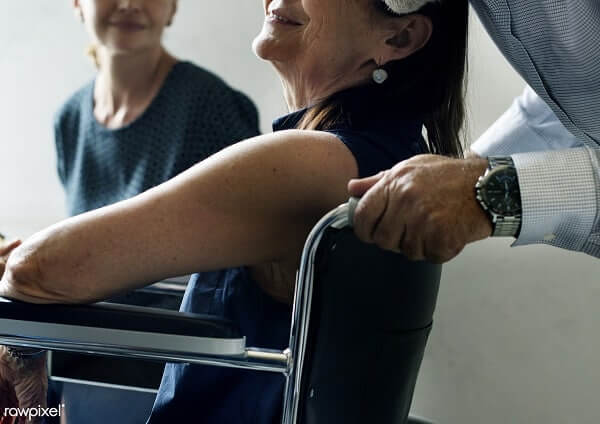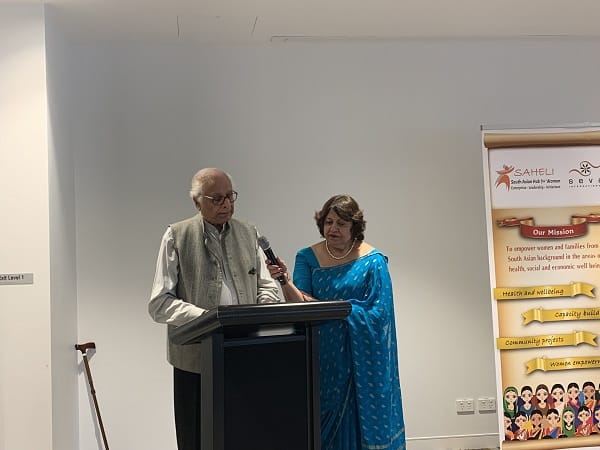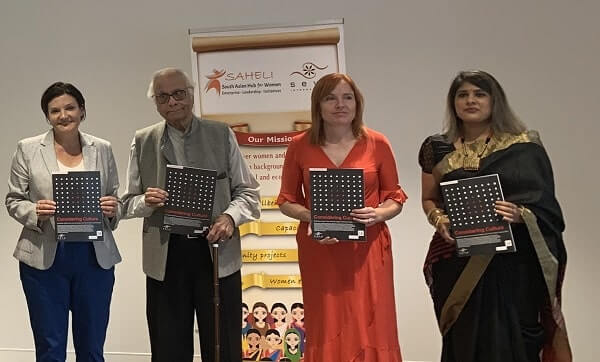“During Lunar New Year, I know exactly where to go to in my electorate if I want to give away some red pockets and celebrate with them. However come Holi or Diwali, I can’t go anywhere to connect to the elderly within the Indian community,” said Jodi MacKay, Member for Strathfield and the Leader of Opposition in the NSW Parliament.
She was speaking at the launch of the report “Considering Culture”, published by the University of Technology, Sydney (UTS) shopfront, in collaboration with SEVA International Inc., an NGO focused on the rapidly expanding South Asian community in Sydney.
Her observation underlined the inadequacy of ‘culturally appropriate’ aged care services in suburban Sydney. As outlined in the UTS and SEVA International Inc report, ‘culturally appropriate’ meant “the delivery or services that satisfy the cultural, social and language needs of a client.”
The report addresses some of the essential yet unique needs of elderly within the culturally and linguistically diverse (CALD) community in the suburbs of Sydney. Its findings remain relevant when you take into account the fact that 14 per cent of the population in Cumberland, Blacktown and Parramatta suburbs is made up of the South Asian community. In these regions, one in 10 people are currently aged over 65 and are in immediate need of aged care services.
The report was compiled after extensive desktop research, customer segmentation and strategic gap analysis by the students of UTS. It looked at culturally appropriate needs of aged care services like nutritious, diverse food; access to scriptures, guidance, and places of worship; and bilingual staff and signage.

READ ALSO: AASHA Australia helps produce Hindi films on elder abuse
Julia Finn, the Shadow Minister for Carers and the Member for Granville, pointed the importance of culturally appropriate communication services in aged care. “When the older people start suffering from dementia, they often forget the language even if they have been speaking English for 20 or 30 years in Australia and will be much more comfortable in their mother tongue; and hence they feel isolated unless there is culturally appropriate care available,” she elaborated.
Meanwhile, Charisma Kaliyanda, Councillor for Liverpool had a personal connection to share. “The report gave me a jolt as my mum’s first job in Australia was that of a nurse in aged care facility, and so I could certainly relate to some of the case studies included.”
She continued to give a snapshot of the significance of the culturally appropriate care in Southern Sydney using some numbers that she had at hand. ‘’15 per cent of the Liverpool population is over 60 years old; 40 per cent of the population is born overseas, and 52 per cent of the population speaks a language other than English at home.”
The report suggested the considerations for culturally appropriate aged care such as access to culturally appropriate aged care services, culturally informed decision making, end of life care training, diverse aged-care workforce, ethno-specific model, partnership model etc. which will serve as a substantial guide as the Indian community continue to explore the concept of these aged care centres.

In light of the Royal Commission into Aged Care Quality and Safety that presents an opportunity to consider the state of culturally appropriate aged care in Australia, the recommendations in the report were:
- An audit of aged care centres in the Cumberland, Parramatta and Blacktown suburbs
- Additional resources to be targeted towards the South Asian community members between 55 – 64 years
- SEVA to focus on improving assisted living options, and to create a website or another centralised information system
- Further research to understand the South Asian aged care users and their specific needs
- Cultural considerations to be advocated for, through relevant policy avenues.
Sue Advani, president of SEVA International Inc. extended a partnership call. “This is a conversation we really need to have. We believe in working as partners, as we are not a single band with our own flag rushing down the street.”
Sue is spot on – together, we could certainly make our point better.
READ ALSO: Read this if you have an elderly parent living alone in India in COVID times
You may have noticed Indian Link news updates are no longer available on Facebook.
Until we’re back on Facebook, here are other platforms you can find our content on and follow us:
Indian Link News website: Save our website indianlink.com.au as a bookmark.
Indian Link E-Newsletter: Subscribe to our weekly e-newsletter.
Indian Link Newspaper: Pick up up a copy at your local spice store, or click here to read the e-paper
Indian Link app: Download our app from Apple’s App Store or Google Play and subscribe to the alerts.
Twitter: Follow us at twitter.com/indian_link
Instagram: Follow us at instagram.com/indianlink
LinkedIn: Follow us at linkedin.com/IndianLinkMediaGroup
YouTube: Subscribe at youtube.com/c/IndianLinkAustralia





